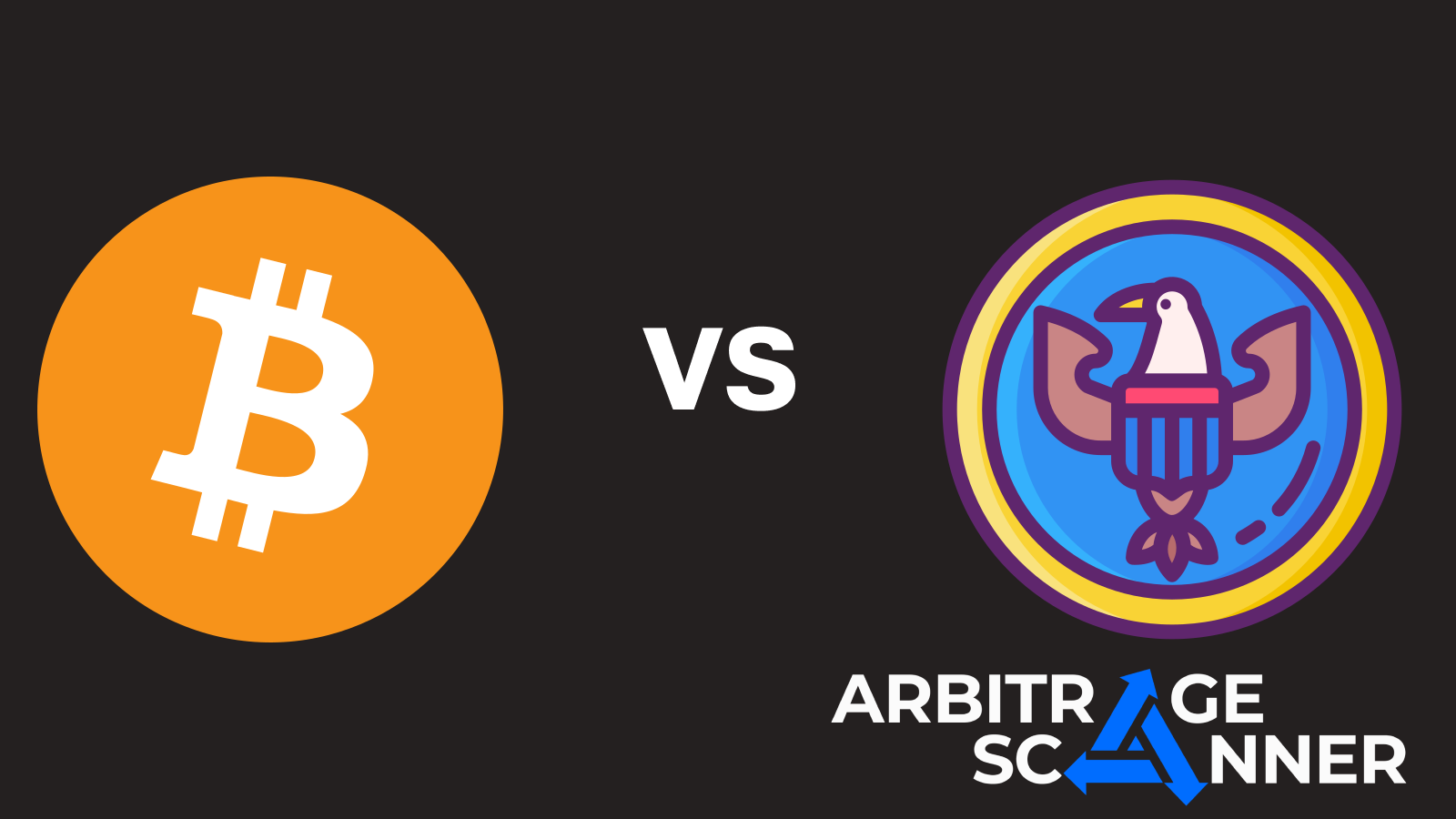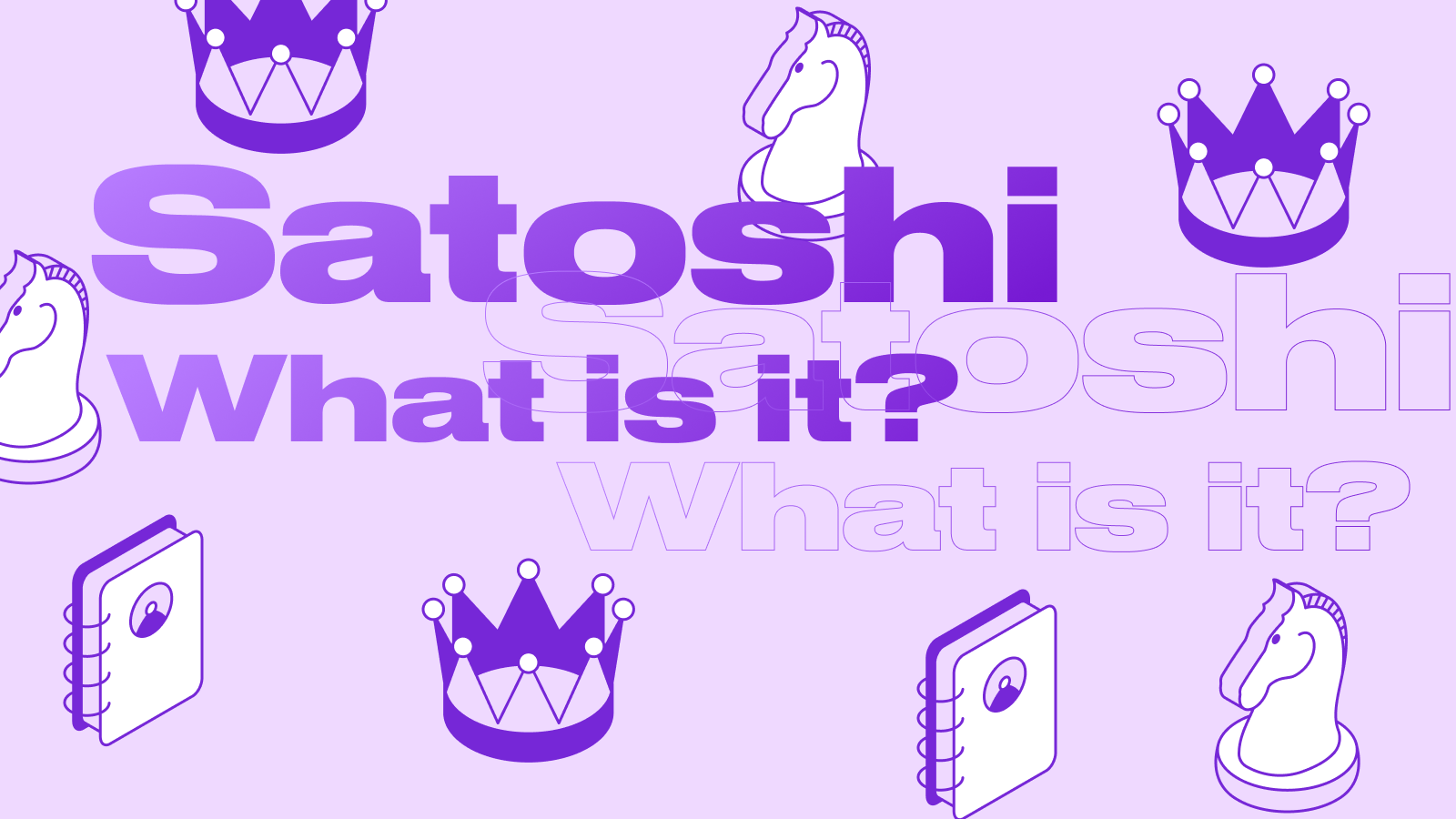What is Bitcoin ETF and Ethereum ETF

In the first month of 2024, news quickly spread that the U.S. SEC had approved the launch of a Bitcoin ETF. This significant event became a key moment for the growth of institutional investments and the convergence of traditional and digital assets.
Before we dive into what a Bitcoin ETF is, let’s briefly discuss what an ETF is.
ETF, or exchange traded fund, – is an investment fund whose shares are traded on traditional exchanges. A share, also known as an ETF unit, is a named security that gives the owner the right to a portion of the fund's assets.
By investing in an ETF, you have the opportunity to invest in all the securities included in the index tracked by the specific fund.
SEC approved Bitcoin ETF
The history of the spot Bitcoin ETF in the United States began more than 10 years ago. One of the first attempts to launch was in 2013.
The U.S. Securities and Exchange Commission, known as the SEC, approved several ETFs in 2021 that allowed investors to invest in Bitcoin futures. However, the decision to launch spot trading of the first cryptocurrency was delayed indefinitely.
In 2022, Grayscale, the future issuer, filed a lawsuit against the SEC, attempting to challenge the refusals to launch. In August of the following year, Grayscale won the case, which subsequently forced the SEC to reconsider the launch of a spot Bitcoin ETF.
What is a spot Bitcoin ETF
A spot Bitcoin ETF is a fund that invests in Bitcoin. One of the main features is that you don't need to register a wallet and store the digital asset. The goal of this ETF is to invest in Bitcoin through traditional investment accounts and brokers.
By investing in a Bitcoin ETF, you are buying shares of a fund that tracks the price of "Digital Gold." With the advent of the Bitcoin ETF, the accessibility of the asset increases, along with its influence and scale.
Spot Bitcoin ETF: difference from futures
A spot Bitcoin ETF allows investors to invest in the first cryptocurrency without the need to buy and store Bitcoin itself.
A futures Bitcoin ETF tracks the price of the instrument in the future, allowing trading on predictions.
The main difference between a futures and a spot ETF is that the former tracks the expected quotation in the future, while the latter reflects the current value of the asset or spot price.
Ethereum ETF Launch
July 2024 became a key date for the approval of an Ethereum ETF, providing the U.S. market with access to investments through funds in "Digital Silver."
This step completed years of processes and debates over SEC approval in favor of Ethereum. The new tool significantly simplifies investor access to trading or investing in the second cryptocurrency, even for those who have never traded digital assets before.
Just a few weeks ago, the approval of an Ethereum ETF seemed controversial. However, at the end of May, SEC officials began actively engaging with potential ETF issuers.
As a result, on May 23, 2024, the U.S. Securities and Exchange Commission approved a key application, indicating that the launch of an Ethereum ETF is only a matter of time.
Ethereum Price on ETF News
The price of Ethereum reached over $3,500 per unit following the news of the ETF launch date. The asset's growth since early July was +26%.
On the first day, ETH-ETF trading volume exceeded $1 billion, but this was four times less than similar Bitcoin ETFs.
On the second day, a net outflow of $130 million was recorded. According to analysts, the launch of the ETH-ETF may follow the same price dynamics as Bitcoin after the launch of the spot ETF. However, lower investor demand for "Digital Silver" is expected.
According to expert forecasts, the net inflow into future Ethereum funds could reach $15 billion over the course of a year.
Pros and Cons of Crypto-ETFs
All investments involve certain risks. The table below highlights the advantages and disadvantages that may arise with the advent of cryptocurrency ETFs:
| PROS | CONS |
|
Increased trust in the cryptocurrency market |
Dependence on the regulator |
|
Inflow of liquidity |
Manipulations by issuing companies |
|
Clear purchase mechanism |
Operating expenses |
|
Regulated legal framework |
Risk of issuer liquidation |
Table 1 — Pros and Cons of Cryptocurrency ETFs
As shown in Table 1, the advantages of ETFs include:
-
Increased trust in the cryptocurrency market: The official launch of ETFs for cryptocurrencies strengthens their authority in the traditional financial world.
-
Inflow of liquidity: Attracting new participants can make the cryptocurrency market more stable, smoothing out sharp price fluctuations.
-
Clear purchase mechanism: Buying cryptocurrencies through an ETF is a transparent and straightforward way of investing, similar to buying stocks.
-
Regulated legal framework: A legal framework and oversight by regulators reduce potential risks.
Although the ETF structure for cryptocurrencies offers certain protection and advantages, there are certain risks:
-
Dependence on the regulator: Cryptocurrency prices may become more sensitive to regulatory decisions.
-
Manipulations by issuers: Large capital can significantly influence the market in its own interests.
-
Operating expenses: When buying cryptocurrencies through an ETF, management fees are factored in, which are not present when purchasing digital assets directly.
-
Risk of issuer liquidation: Despite strict management rules, there is a risk of ETF issuer liquidation, which could lead to delays in asset distribution among investors and mismatches with their expectations.
Key Cryptocurrency ETF issuers
Before discussing the key issuers, let's clarify what an issuer is.
ETF issuers are organizations that create and manage exchange-traded funds (ETFs), bringing them to market. When you buy ETF shares, you are purchasing a stake in a fund managed by the issuer.
Top 3 Largest Cryptocurrency ETF Issuers:
Grayscale:
Specializes in cryptocurrency funds, offering investors the opportunity to invest in digital assets using traditional financial instruments.
Grayscale Bitcoin Trust (GBTC) is the company’s most famous product.
| ASSET | BALANCE | VALUE |
| BTC | 268K | $15.8B |
| ETH | 2.32M | $6.17B |
Table 2 – BTC and ETH balance of Grayscale as of 13.08.24
BlackRock:
The largest asset management company in the world.
The iShares fund, managed by BlackRock, covers a wide range of assets and markets.
| ASSET | BALANCE | VALUE |
| BTC | 347K | $20.47B |
| ETH | 287K | $762M |
Table 3 – BTC and ETH balance of BlackRock as of 13.08.24
Fidelity:
One of the largest investment companies in the United States.
Offers convenient and accessible funds for retail investors.
| ASSET | BALANCE | VALUE |
| BTC | 291K | $17.12B |
| ETH | 254K | $674M |
Table 4 – BTC and ETH balance of Fidelity as of 13.08.24
How issuers earn
Issuers attract clients with the size of their fees. For example, Grayscale's fees are significantly higher than those of competitors, at 1.5%, while BlackRock and Fidelity have fees around 0.25%.
Crypto-ETFs: storage and purchase of Cryptocurrency
To ensure the safety of cryptocurrency, most issuers have chosen the largest cryptocurrency exchange, Coinbase, as their custodian (third party).
After the assets are purchased by the funds, the coins are transferred from the custodian's crypto wallet, a CEX exchange, to wallets owned by the issuers.
This approach ensures secure storage of assets since the final address is a cold wallet.
You can explore the largest issuer's Ethereum ETF wallet – here
Solana ETF: the next big thing in Cryptocurrency
Approval of the Solana ETF is a hot topic in the crypto community. While exact timing is uncertain, in June, VanEck filed an application to create an ETF.
VanEck's Application for Solana ETF
One of the companies that launched the Bitcoin ETF has submitted the first and only application for a Solana ETF. VanEck believes that the Solana blockchain is a serious competitor to Ethereum, combining scalability, speed, and low transaction costs.
Chances of Launching a Solana ETF
According to Bloomberg analyst James Seyffart, the launch of a Solana ETF is not likely before 2025, and only if there are changes in the White House administration and the SEC. However, even under such conditions, there are no guarantees.
In the summer of 2023, the SEC classified Solana tokens as securities, complicating their trading and tightening regulations.
Cryptocurrency ETFs: how they will impact the market
Spot ETFs for Bitcoin and Ethereum may become the main bridge between traditional finance and digital assets. Now Bitcoin and Ethereum can be legally included in American portfolios, including pension funds.
In conclusion, growing interest in digital assets and the launch of ETFs are a strong signal for an increase in institutional investors and the mass adoption of cryptocurrencies as a means of saving and long-term investment.
Want to learn more about crypto arbitrage?
Get a subscription and access the best tool on the market for arbitrage on Spot, Futures, CEX, and DEX exchanges.






